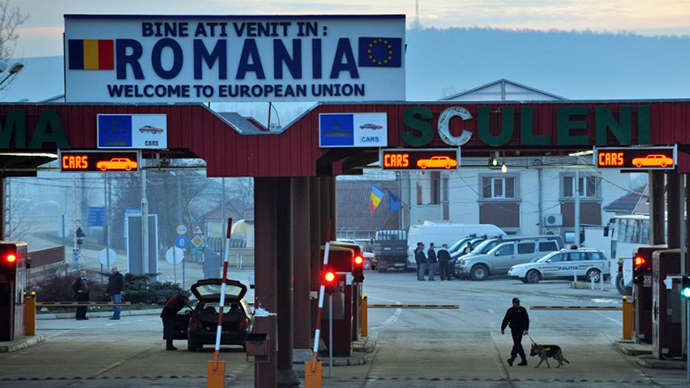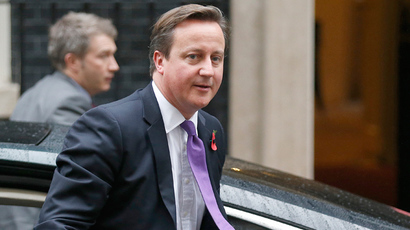‘Immigration panic’: Britain fears migrant tide as work restrictions fall with New Year

Britain is preparing for a surge in immigration as work restrictions for Bulgaria and Romania are lifted on January, 1. Seats on buses and planes to London are said to be booked for days as thousands of migrants head to the UK.
This is despite the high prices charged during the New Year period.
For seven years, since 2007 when Romania and Bulgaria joined the EU, citizens of the two countries have been allowed to work in the UK only on visas and if they were self-employed, had a job offer, or were given a specialist role.
Now, with Britain opening its borders to them, think-tanks predict up to 50,000 people a year will come to the UK. However, local ministers hesitate to predict how many migrants from Romania and Bulgaria might arrive. Britain is one of nine other member states – including Austria, Spain and the Netherlands - that are lifting restrictions at the same time.
Migration Watch UK warned in its recent report that the country’s wages and benefits will act as a “magnet” to two million Romanians and Bulgarians already living in Spain and Italy. After moving to the UK they could earn between 40 percent and 50 percent more.
While most people are expected to be trying to find a job upon arrival, there are some who make no secret of their plans to move and take full advantage of the benefits, which would become available to them.
“Can I give birth in the UK for free given that neither my husband nor I have the correct papers? Will we get British citizenship for our child?” the Daily Mail cited an unnamed woman asking for an advice on the Internet.
There have also been employment agencies set up in Sofia, the Bulgarian capital, which offer potential migrants help with housing and child welfare, the Daily Telegraph has learnt.

Driven by what conservatives called the “immigration panic”, the British government has rushed through a series of changes to its welfare system. In one of the recent moves, it prevented Bulgarians and Romanians from receiving student loans.
Among fresh changes, David Cameron government rushed through new laws to ensure that migrants from the two countries will have to wait for three months before they can start claiming benefits. Their benefits will then be stopped after six months if they don’t prove they have a realistic chance of finding a job. Migrants whose English is considered to be not of a high enough level to work in Britain could be denied benefits.
“There must now be a renegotiation of the benefit system in
the EU which was designed before 100 million people in much
poorer countries joined the EU,” Migration Watch UK chairman
Sir Andrew Green said Tuesday.
In response to the recent innovations, Bulgarian president Rosen
Plevneliev warned the British government not to abandon its
traditional tolerance of immigrants in favor of isolation.
"Isolating Britain and damaging Britain's reputation is not the right history to write," he told in the interview to the Observer in December. “The 21st century is about not building walls, but bringing them down, linking peoples, cultures, economies, industry," he said.
Romania also dismissed “invasion fears” saying that “the UK is not the preferred destination of Romanians.”
"There isn't going to be an invasion of Romanians as of two days' time. Not all Romanians, young and old, are going to get on a plane,” the country’s foreign ministry spokeswoman Brandusa Predescu told the BBC.
Meanwhile, Britons in general do not seem to mind migrants coming to the UK, if they learn English, get a job, pay taxes and become part of their local community.
The recent poll by the Ipsos Mori showed that 72 percent of people aged between 35 and 44 support migrants’ right to come to live and work in the UK.
According to the polling, 63 percent supported the tightening of the welfare system.
Writer and journalist John Wight has told RT that migrants from
Romania and Bulgaria can be a benefit the UK economy as “all the
evidence says that most migrants come to work”.
“All the available evidence says that migration to Britain has
been positive both in terms of cultural and economic enrichment.
If you take the health service as an example – our national
health service would be non-existent without migrant labor. All
levels of skills – nurses, doctors, consultants and
clinicians,” he said.
At the same time, limiting social benefits for migrants is
“against the european law”
“It takes the view that the EU can be a pick and mix – that we
can take what we want and we can leave what we want,” Wight
said.















